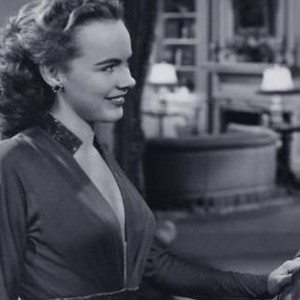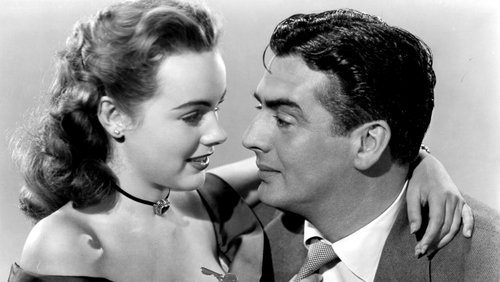Gambling House 1950
Gambling House 1950 Cast
The film was Gambling HouseAllPosters.com offers the best selection of Gambling House (1950) Posters for sale online, with fast shipping, custom framing, and the best deals for every budget & decorating style. Gambling House (1950) RKO Radio Pictures: REVIEW: Spain: The Gangster (1947) Allied Artists: REVIEW: Warner: WB ARCHIVE: The Garment Jungle (1957) Columbia REVIEW: Sony: Gaslight (1944) Warner REVIEW Warner Archive: Warner Store: Gilda (1946) Columbia COMPARISON Columbia. Offering free goods and services to casino patrons in return for their business is called a. A public gambling house was legalized for the first time in 1626 in a. North America d. The first modern casino in Las Vegas was opened on the strip in a.
, a 1950 RKO production that showed a lot of promise as a film noir even though the stars were Victor Mature (well, he did make noir-ish movies like The Shanghai Gesture and I Wake Up Screaming ) and Terry Moore, and William Bendix (TCM showed this one as part of a birthday tribute to him) really stole the movie even playing a part he wasn’t especially well suited for. The title is pretty inexplicable — one would expect from it that Mature would be playing a man running an illegal casino (the setting is New York City) but in fact, though he’s a gambler, he doesn’t have a casino of his own and he does his gaming in a Guys and Dolls-style “floating crap game” in various hotel rooms. He’s Marc Fury — short for his true name, Marcus Furioni (since he’s supposed to be Italian, “Marco” would have been a more appropriate first name) — and as the film begins he’s recovering from an injury sustained in a gun fight in which gang boss Joe Farrow (William Bendix) shot and killed a man.
) and Terry Moore, and William Bendix (TCM showed this one as part of a birthday tribute to him) really stole the movie even playing a part he wasn’t especially well suited for. The title is pretty inexplicable — one would expect from it that Mature would be playing a man running an illegal casino (the setting is New York City) but in fact, though he’s a gambler, he doesn’t have a casino of his own and he does his gaming in a Guys and Dolls-style “floating crap game” in various hotel rooms. He’s Marc Fury — short for his true name, Marcus Furioni (since he’s supposed to be Italian, “Marco” would have been a more appropriate first name) — and as the film begins he’s recovering from an injury sustained in a gun fight in which gang boss Joe Farrow (William Bendix) shot and killed a man.Farrow offers Fury $50,000 to take the blame for the killing, including representation by Farrow’s own lawyer and a series of witnesses, including Farrow himself, who will testify that Fury committed the murder in self-defense and get him off. Fury makes the deal, only no sooner is he acquitted than he’s arrested again — this time by Federal agents, who have found he was born in Lacania, Italy and though he’s been in the U.S. since age five, his parents never bothered to become U.S. citizens and therefore he’s a citizen either. Therefore, since though he served honorably in the military during World War II his peacetime activities included a lot of criminal convictions, the U.S. government has decided to seek his deportation as an undesirable alien. It’s a fascinating basis for a movie and it has resonance even today — one could readily imagine a remake in which the protagonist would be a young gangbanger who tried to turn his life around by enlisting in the U.S. military, only to get the door to legal residency slammed in his face by the failure of the DREAM Act and the hard-line attitude being taken by Immigration and Customs Enforcement (ICE) of deporting any undocumented immigrants convicted, or in some cases even arrested for a crime, no matter how minor, to try to get as many of the presumably “worst” ones out of the U.S. forever.
Alas, the script we actually have — by Marvin Borowski and Allen Rivkin, based on a story by Erwin Gelsey (who also wrote the story for the Fred Astaire-Ginger Rogers musical Swing Time, another film in which the male lead was a gambler) — doesn’t rise to the interesting possibilities of the premise, notably the culture shock Marc would feel if the government successfully deported him (there are hints of that in his total non-knowledge and disinterest in the Italian language and his response, when he’s asked exactly where in Italy his native town Lacania is, that he hasn’t the slightest idea) and the whole issue, moral as well as political and legal, of throwing a person out of a country when he’s lived his whole conscious life here and knows no other sort of life. Instead the film grafts an exciting crime thriller onto a rather preachy story about how Fury, threatened with deportation, rediscovers the American dream and embraces it in the person of volunteer aid worker Lynn Warren (Terry Moore), who takes his case for an International Rescue Committee-style organization and with whom, of course, Fury falls in love.
The thriller elements of this plot include Farrow’s reneging on his deal to pay Fury the $50,000; Fury crashing Farrow’s nightclub and stealing it, then buying a cashier’s check with it and sending it to an Eastern European family Lynn is also representing; and Fury finally winning his deportation hearing against all odds after the judge (Basil Ruysdael, who played Detective Hennessy in The Cocoanuts in 1929, thereby putting the entire rest of this cast one degree of separation from the Marx Brothers — though he made something of a specialty in playing judges; he’d previously done so in Pinky and The File on Thelma Jordon and would do so again in These Wilder Years; he also played a lot of ministers and professors) is moved by his plea for a second chance to be a good American, then getting involved in the inevitable final shootout that leads to Farrow’s death.

I suspect Howard Hughes’ influence in the horrible preachiness of the script — particularly in Terry Moore’s supposedly “inspirational” lines as she tries to talk him out of his crooked lifestyle and into being a “good American” — and though the imdb.com reviewer whose comments on the film came up when I looked it up on their Web site loved the actors and hated the movie, my reaction was almost the exact opposite: I found the story fascinating, though flawed, but didn’t care for the actors. Victor Mature was all wrong for the part — I kept thinking how much better this film would have been with someone like Dick Powell in the lead, who would have portrayed the character’s arc from devil-may-care anti-social individualism to a sense of a social conscience with a sort of world-weary flippancy that eluded Mature — and Moore was even weaker, walking through a part Barbara Stanwyck (if she’d been about 15 years younger) or Ida Lupino could have played to the nines. Bendix is miscast — he was utterly right for his role as the mentally disabled veteran in The Blue Dahlia (and his performance in that film would have been even stronger if the U.S. military had allowed Paramount to keep Raymond Chandler’s original ending in which Bendix’s character was the murderer instead of threatening not to cooperate with any Paramount production in the future if the plot device of having a man being driven homicidally crazy by an injury suffered in combat was retained), but he’s pretty unconvincing as an unscrupulous gang boss.
Gambling House 1950 Film
Gambling House is one of those frustrating bad movies with a good movie trapped in it trying to get out — the director is Ted Tetzlaff, making the transition from cinematography after having shot two of the greatest noirs of all time (Notorious
Movie Gambling House 1950
 for Alfred Hitchcock and the original D.O.A. for another cinematographer-turned-director, Rudolph Maté), and the visuals Tetzlaff and veteran RKO cinematographer Harry J. Wild come up with are impressive (more so in the crime-thriller scenes than in the parts of the storyline dealing with Terry Moore and her missionary work with immigrants), and there are some quite clever ironies (notably the one that pending his deportation hearing Fury is being detained at Ellis Island, surrounded by newly arrived immigrants seeking the same legal U.S. residency status Fury had had and essentially pissed away), but the potentially interesting drama gets lost in a flood of too many leaden “Americanist” speeches and Victor Mature — at least under Tetzlaff’s direction (maybe if he’d got to make more than one film with Josef von Sternberg, who cast him as an opium-addicted doctor in The Shanghai Gesture and got the performance of Mature’s life out of him, he’d have developed into a stronger actor than he was during his glory years) — simply isn’t good enough to dramatize the character’s inner conflicts and fears.
for Alfred Hitchcock and the original D.O.A. for another cinematographer-turned-director, Rudolph Maté), and the visuals Tetzlaff and veteran RKO cinematographer Harry J. Wild come up with are impressive (more so in the crime-thriller scenes than in the parts of the storyline dealing with Terry Moore and her missionary work with immigrants), and there are some quite clever ironies (notably the one that pending his deportation hearing Fury is being detained at Ellis Island, surrounded by newly arrived immigrants seeking the same legal U.S. residency status Fury had had and essentially pissed away), but the potentially interesting drama gets lost in a flood of too many leaden “Americanist” speeches and Victor Mature — at least under Tetzlaff’s direction (maybe if he’d got to make more than one film with Josef von Sternberg, who cast him as an opium-addicted doctor in The Shanghai Gesture and got the performance of Mature’s life out of him, he’d have developed into a stronger actor than he was during his glory years) — simply isn’t good enough to dramatize the character’s inner conflicts and fears.
Is the synopsis/plot summary missing? Do you want to report a spoiler, error or omission? Please send us a message. If you are not a registered user please send us an email to info@filmaffinity.com All copyrighted material (movie posters, DVD covers, stills, trailers) and trademarks belong to their respective producers and/or distributors. For US ratings information please visit: www.mpaa.orgwww.filmratings.comwww.parentalguide.org |